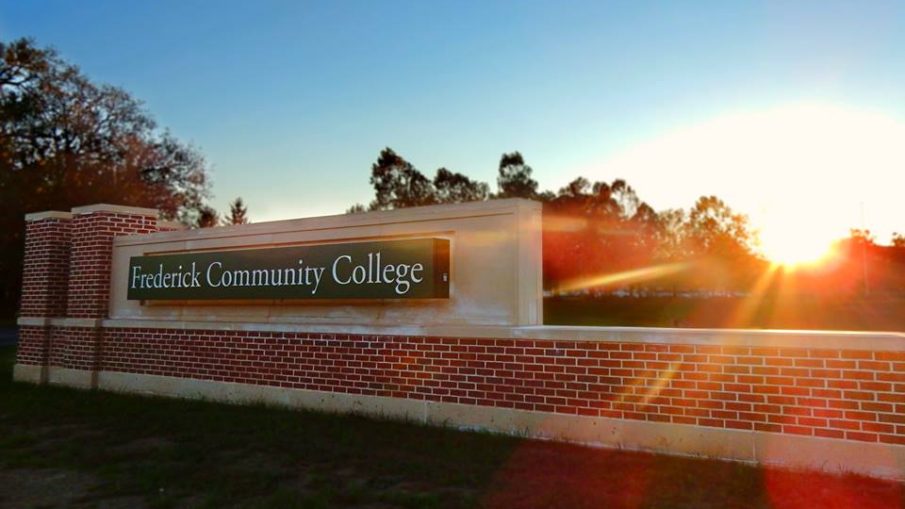By William Lamkin
 John Delaney, Congressman of Maryland’s sixth district, visited a Frederick Community College classroom on Feb. 9 where he talked to government students about the relationship of local and federal government and answered student’s questions on several hot-button issues.
John Delaney, Congressman of Maryland’s sixth district, visited a Frederick Community College classroom on Feb. 9 where he talked to government students about the relationship of local and federal government and answered student’s questions on several hot-button issues.
After Delaney gave his lecture, he ended the class with a short question and answer session. One student asked about his position on abortion, to which Delaney supported a woman’s right to choose, but reminded the class of his strong personal ties to religion. When I was given the opportunity, I asked the congressman to comment on the current state of government action against climate change.
“The United States military is viewing climate change as a geopolitical threat,” said Delaney. “In the next 50 years, a large percentage of the world’s poor population is expected to be displaced because they live close to or below sea level. In the country of Bangladesh alone, 20 million people could be displaced,” he added.
Delaney went on to discuss the United Nation’s involvement in putting disaster relief procedures in place to aid foreign countries. Delaney brought the conversation back to renewable energy systems in the United States by telling the class about the economic opportunity of the current situation.
“Increasing sustainable energy production isn’t just good for the environment; it’s good for the economy. Just as the global economy in the 20th century was profoundly shaped by oil and gas production, the nations that provide new energy solutions that reflect the realities of climate change will thrive in the 21st century,” noted Delaney on his website.
Delaney spent some five minutes talking about the economic opportunities that are presented by switching our energy infrastructure from fossil fuels to renewable energies. Delaney’s most notable point on domestic clean energy was his vision for the future of solar energy systems.
“Moore’s law is may be applicable to the installation and cost of solar energy,” said Delaney.
Moore’s law is the observation that, over the history of computing hardware, the number of transistors in a dense integrated circuit has, without fail, doubled about every two years. Delaney then described how he envisions this law taking place.
“Eventually you could be able to buy a solar energy system that is, a condensed energy absorbing material in a spray-can, that you can apply to a surface and can be used once you install the correct wiring,” Delaney said.
After class ended, I asked the other students what they thought of Delaney’s answer on climate change.
“I liked that Delaney viewed the dangers of climate change in a holistic way. His vision for solar panels in a can was interesting, but overall he seemed to be well informed on the issue, so I was satisfied with how he answered,” said Sarah Lamkin, a 20-year-old student at FCC.
According to NASA’s website, 97 percent of actively publishing climate scientists agree; climate warming changes in the past century are very likely due to human activities.

